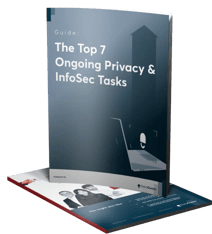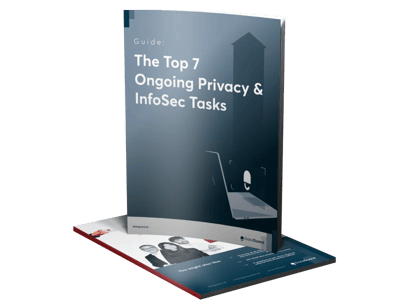Cyber security threats are growing in sophistication and frequency, with no signs of slowing down. As we have seen in recent years, attackers don’t just target businesses. They also target local governments, police departments and public health services, among others.
Today, the public sector has become a favoured target for cybercriminals. Armed with automated botnets, hackers rummage through computer systems to locate under-secured “soft targets”.
You might wonder why a hacker would target a public sector organisation instead of a large corporation or a wealthy business. The answer lies in “leverage”.
Hackers are well aware of the fact that no public sector organisation would risk their data being compromised as they have so much to lose. Therefore, in case of a hacker’s ransomware demand, they are more likely to comply.
The old security measures aren't working anymore, as the old approach to security is just not keeping up with the growing legion of diverse, sophisticated, and aggressive cyber threats. Legacy security is proving ineffective against these threats, and it's time for a major upgrade.
The public sector has gone digital.
Like the private sector, government institutions have gone digital. As they collect and store sensitive data, they are also required to keep this data secure by law.
Government agencies also have a duty to protect the privacy of the people who provide it. They are not only responsible for keeping information safe from cyber threats, but they must also ensure that this data is only shared with those who are legally entitled to access it.
As government activities continue to migrate to the digital realm, so do criminals
Large-scale cyber-attacks are becoming more frequent and more costly.
Cyber threats can come from many different sources. The threat level could rise even further if a hacker manages to gain access to classified government documents such as medical records or military secrets.
The addition of cloud, mobile, social computing and information technology environments has expanded an organisation’s attack surface and became more challenging to defend. It further illuminates the fact that your cyber security is only as strong as your weakest point.
The public-sector push for modernization has been a mixed blessing. The COVID-19 pandemic spurred agencies to embrace cloud. But this rush into hybrid environments also complicated data management and oversight, adding more locations where data may be stored.
Ransomware: The biggest threats for the public sector
Ransomware is a significant threat to governments and other public sector entities. Recent research show that ransomware attacks are becoming more targeted, profitable for attackers and causing greater economic damage to private and public entities.
In Europe, the EU warned that ransomware remains the top cyber crime threat, with governments being particularly vulnerable to such attacks. Ransomware attacks block access to vital data and are described as being targeted, more profitable for the attackers and causing greater economic damage to private and public entities.
INTERPOL sees cybercrimes as a top concern
INTERPOL’s first-ever Global Crime Trend report saw more than 60% of respondents rank crimes such as money laundering, ransomware, phishing and online scams as high or very high threats.
Moreover, more than 70% of respondents expect crimes such as ransomware and phishing attacks to increase or significantly increase in the next three to five years.
Data Breaches
What happens when attackers breach local government, police departments or public health services?
When attackers breach local government, police departments or public health services, they can lead to service interruptions at the very least. More serious problems could occur, such as leakage of classified data or damage to critical infrastructure.
For example, in 2017, the Wannacry ransomware cyber attack on the National Health Service (NHS) affected over 600 organisations; this included 34 infected hospital trusts (NHS organisations that provide acute care, specialised medical services, mental healthcare, or ambulance services) and 46 affected hospital trusts. Infected hospital trusts were locked out of their digital systems and medical devices. On the other hand, affected trusts reported disruption through preventative action or sharing systems with infected organisations.
According to a report, the WannaCry ransomware attack cost the NHS a total of £92m through services lost during the attack and IT costs in the aftermath.
What is the real cost of a data breach for government agencies?
Most reports on cyber security revolve around a common theme: despite heightened attention and unprecedented levels of security investment, the number of cyber incidents — and their associated costs — continues to rise.
In an evolving threat landscape, time is money.
According to the most recent IBM Cost of a Data Breach report, each public sector incident costs $2.07 million on average. In 2018, the U.S. government faced a total of $13.7 billion in costs due to cyberattacks. Clearly, governments at all levels and in every country are at risk. The stakes are high, and preparedness is essential.
The question is: How can public agencies protect themselves against such attacks?
Doing nothing is no longer an option: How to prevent data breach and cyber attacks
The public sector is under more pressure than ever before to keep its IT systems secure. With the rise in cyberattacks and the increasing sophistication of attackers, it's more important than ever for government agencies to keep their data secure.
The best way to prevent a data breach is to understand why it’s happening.
The good news is that there are some simple steps that government agencies can take right now to ensure that their systems are secure such as:
- Create a solid cyber security strategy and develop policies
- Encrypt your data
- Control who gets permission to access data in the first place
- Perform information security audits
- Conduct privacy and confidentiality impact assessments
- Train your employees
- Keep all your software up to date
- Deploy next-gen firewalls
- Reduce your exposure using essential security controls
At DataGuard, we help public sector and non-profit entities to reduce their organisations' potential risks around cyber security and data privacy.
Through our future-ready privacy and information security solutions, we empower them to be secure, vigilant, and resilient.
If you’re interested in learning how we can help your organisation protect its reputation and establish cyber defences to ensure your organisation’s name is not added to the list of data breach or cyber attack victims, get in touch with us today.


The Top 7 Ongoing Privacy & Infosec Tasks
This guide explains the top seven privacy and infosec tasks you should be paying attention to.










